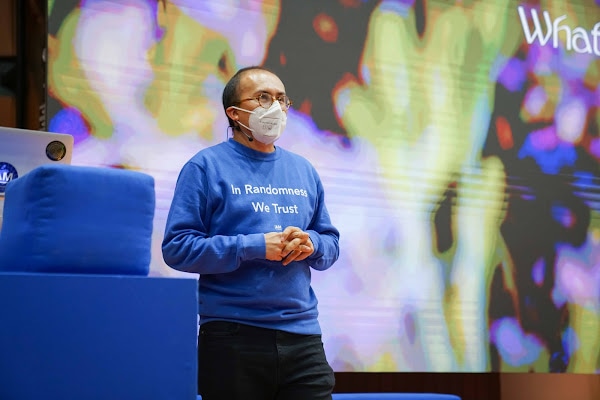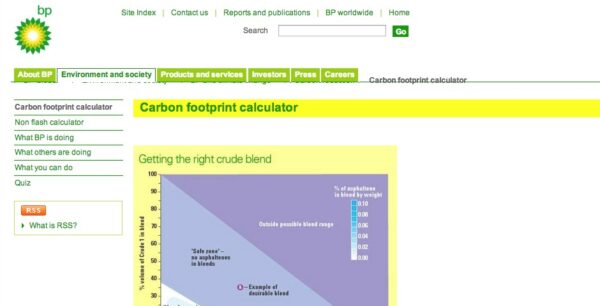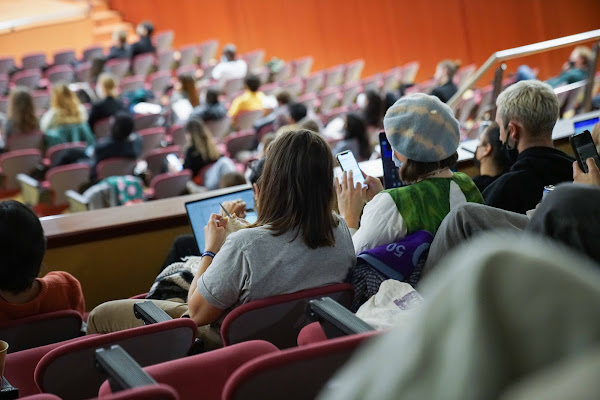
Articles written about the energy footprint of our internet behaviour often focus on individual behaviour. For example, one minute worth of Google searches costs as much energy as producing 4000 plastic bags, or one minute of global Netflix usage consumes as much as 896 cars running for an entire year. Such comparisons do help to make the energy consumption of the internet tangible, but while preparing for this dossier, we noticed the importance of putting this environmental issue into a broader perspective.
IAM has a similar belief. IAM is a creative research lab ‘on a mission to change how the digital economy is changing Everything’. Last year’s edition of their annual conference was dedicated to our relationship with Planet Earth. The essay they wrote to prepare for their conference emphasised that the environmental emergency cannot be separated from social injustice derived from extractivism. I had a chat with IAM co-founder Andres Colmenares to understand the interconnection of these topics and learn what insights he gained during the conference that will help him—and could help us—towards a better future.
Lilian Stolk: Can you tell me a bit more about your approach to tackling the environmental emergency related to our digital life?
Andres Colmenares: We essentially feel that finally, after so many years, the discussion about carbon emissions has become mainstream and it’s on the agenda of big and small companies and governments. More people are aware of it. But in our opinion, the conversation is focused too much on carbon emissions and the concept of a carbon footprint. This very quickly drives towards possible technical solutions or changes in behaviour, without questioning where the carbon footprint idea actually comes from.
LS: Oh yes, we have also had that discussion with our team. We first wanted to title this dossier ‘Digital Carbon Footprint’, but my colleague rightfully mentioned the term carbon footprint was created to blame individuals for their energy usage.
AC: Indeed! It was tailor-made by an advertising agency for a big oil company1, and by doing that it removed the power of communities. This has a nice link with a couple of things related to your country, The Netherlands. In October 2021, a few days before the climate conference in Glasgow, TED organised ‘TED Countdown’. In it was this—now famous—panel between the CEO of Shell and an activist that got completely disrupted. It’s worth watching. Shell announced it was appealing against the Dutch court ruling that compelled the oil giant to cut its carbon emissions faster. During the panel, the activist was asking the CEO to say they were not going to fight that ruling. It caused tension when the CEO didn’t want to discuss that topic, and the activist left the panel. More recently, the Dutch Reclame Code Commissie banned a couple Shell campaigns, accusing them of manipulating public opinion by greenwashing, something that would have been very useful around the time that the term ‘carbon footprint’ was invented.

LS: Certainly agree!
AC: This is a concrete example of a situation where citizens are exercising their power against big oil companies, which can have very big implications for the future depending on the companies’ responses. This is why we feel it is very important to go one step deeper, into the root causes of the emergency and the invisible power dynamics there. For example, fossil fuel companies that have ties with imperialism and colonialism. We consider it urgent to understand that the emergency is not only ecological but also related to social justice by definition.
The digital divide has been framed as access to technologies and networks, but we now see the consequences of people having only limited access. For example in Southern Asia, where the internet is Facebook, and everything goes through them. On one hand media literacy is important: the basic things that everyone needs to know when you use these tools. At the same time, we need a critical attitude towards these technologies: towards the way we use them and understand them. This ultimately shapes the decisions that we make, and that governments make, and it can have many different implications. Ultimately in our IAM research team, we think that design, art, journalism and even technology can highlight the complex relationships betweenenergy and the history of power balance and make them understandable.
LS: The theme of last year’s IAM Weekend was ‘Imagining Intercitizenships’. Can you explain what you mean by ‘intercitizenship’?
AC: Part of the power struggle resides in the limitations of our language. There is definitely a lot of power in words. Web3, metaverse, NFT; the tech world is full of new words that are frequently used, but didn’t exist in mainstream media a few years ago. We feel it’s important to define our own tools to refer to a network of ideas and values. The idea of creating a word is also part of it. This is what we’re trying to do with the intercitizenships. We want to create a sense of belonging to the planet, shifting from the idea that we are living on Planet Earth, to the idea that we are Planet Earth. This essentially brings us to a very beautiful concept of interdependence and being aware of those interdependencies. We have a lot of life inside our bodies. There are a lot of interdependencies within very physical systems when you look at how energy works. Even how a data center works. Just the idea that for the internet to work, it needs a lot of water to cool down the data centers. This is something that people don’t often think about. At the same time, we are 60% water. There are a lot of these relationships, and more people are becoming aware of them. This awareness can change how we’re relating to our technologies and ultimately the decisions around our use of technology everyday. It also refers to our identities and values in this digitally driven space. It has to do with claiming rights and taking responsibility for our behaviour and consumption. All of this is guided by the context of environmental emergency. We can not see the invasion in Ukraine as a separate event. It’s all related to fossil fuel destruction and these power struggles. Being aware of the power that we have as collectives—as groups of citizens, not just citizens of a nation state but citizens of a broader territory—can influence the change that we need now to survive as a species.
The most recent IPCC report ended up completely under the radar because of the war, but it declared that billions of people are already experiencing the consequences of climate change, and that we have a very small window to avoid that planet earth will stop being a place where we can live as humans. Many people have a distorted perception of this threat. They think it might come or will come, but are not aware it is already happening. I think this also relates to our digital habits and how we consume information. Most people are experiencing the news through feeds that don’t give context.
LS: It seems like our media consumption is also changing, at least for a small group. I’m not sure if this will be part of a structural change. You see that instead of mainstream social media platforms, the popularity of community based platforms such as Discord are rising. On these platforms people talk about certain topics with a small group of like-minded people. Do you think this community-centered internet can help us become intercitizens?
AC: Yes and no at the same time. I feel there is definitely an appetite to go back to a web-based internet. This is a very natural reaction or resistance to the monopoly positions of companies like Google and Facebook. At the same time, this is something that is still super, super niche compared to the number of people that have limited access to the internet. The reality is that there are millions of people who are trapped in having Facebook as their only internet.
It is exciting that people are organising and questioning economic systems and the whole debate on decentralisation and cryptocurrencies. These alternatives show a more participatory relationship with technologies. We become shapers, rather than passive users, which I think was dominant over the last ten years. One thing that gives me a lot of hope is the evolution of the tech worker movements, especially in the US. This is really about a power shift, and a manifestation of the awakening that is happening. It is an awareness of how things can really change. The tech worker movements is something that gives me a lot of hope.

LS: At IAM Weekend last November, you invited a large group of interesting speakers to collaborate on imagining intercitizenships. What are three things you learned yourself during the conference?
AC: Three short practical final notes, sort of challenges for people like us working in cultural communities and creative industries:
One: Work more on our relationship with energy. Understand how these systems work, what we can do on an individual level and what impact this can have. What are the real costs of electricity? And how can we govern these resources differently?
Two: Cultivating a critical imagination of this next wave of the internet, web3. Critical because we need to question who is driving the dominating narratives. And imagination because I feel this is more about cultural innovation and cultural change. It is really about people changing their attitude and beliefs about many things, like money itself. I think we need to keep that balance between the critical attitude, and also keep our imagination.
Three: The importance of everyday life decisions that ultimately shape everything else. Within this, the main challenge is—coming back to the beginning of our conversation—how to organise, and act collectively. In particular in European countries, the narrative of the relationship between all of us and the emergency has been centered around individual impact. I’m a better citizen when I don’t fly or I’m a better citizen when I don’t use plastic. This is partially true, but this won’t really change things on the scale and speed that we need. If we’re able to organise, we can change things on a more systemic level. The internet, the web and the infrastructure are there to help us, to change our behaviour at a larger scale and speed, and to make responsible use of it. Because it also has a lot of costs. So I think this is the homework for all of us: how can we better organise? How can we coordinate and join forces? Have agendas that are shared? So that, ultimately, we are all pushing in a similar direction.
References
| ↥1 | The advertisement instructed people to calculate their personal footprints and provided ways for people to “go on a low-carbon diet” |